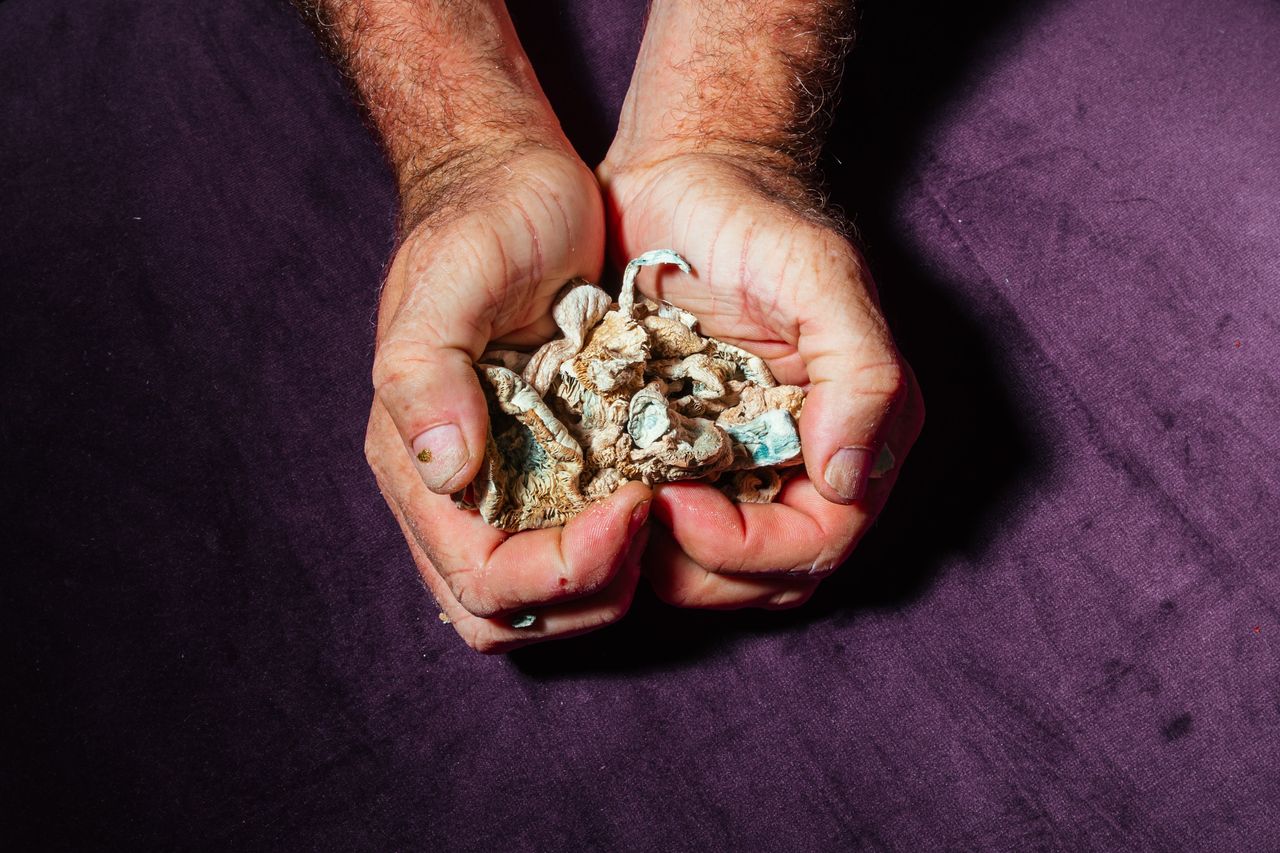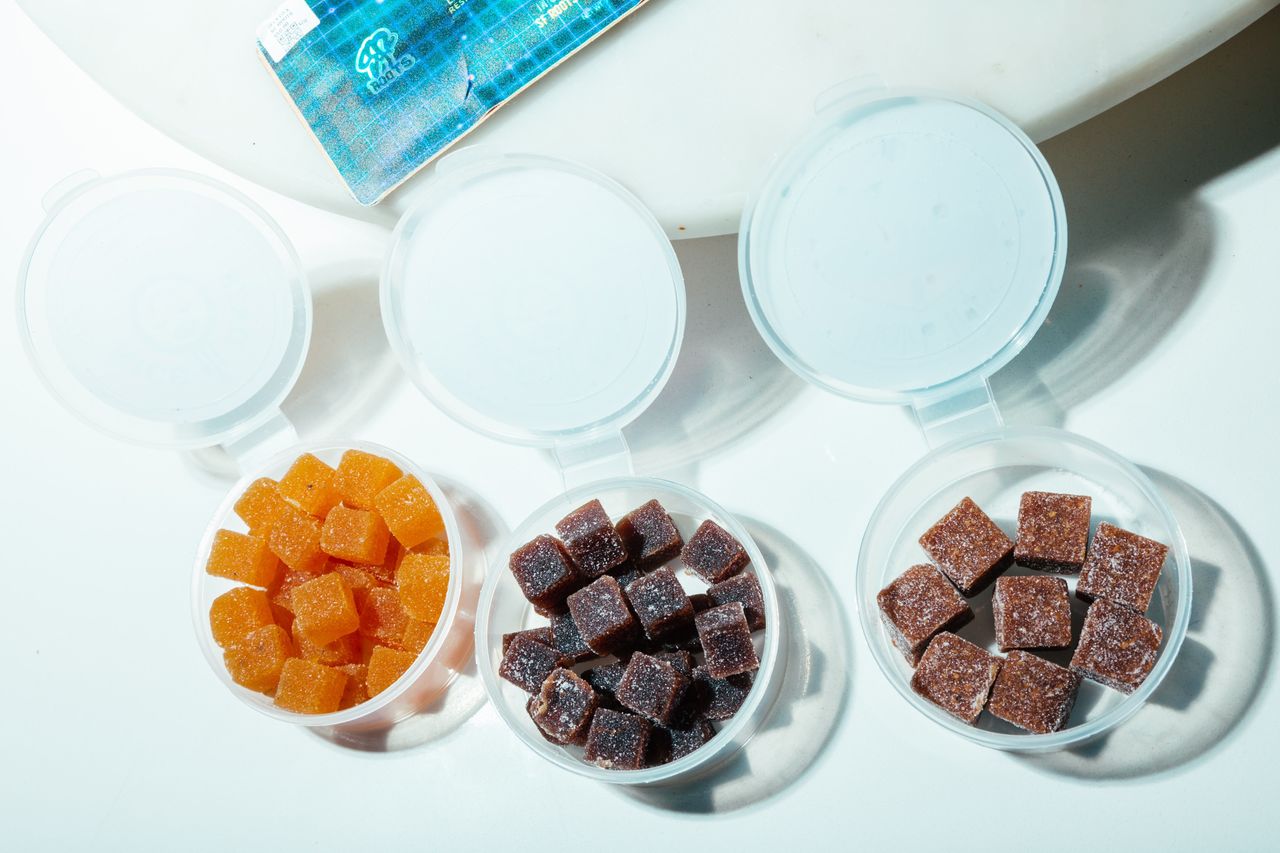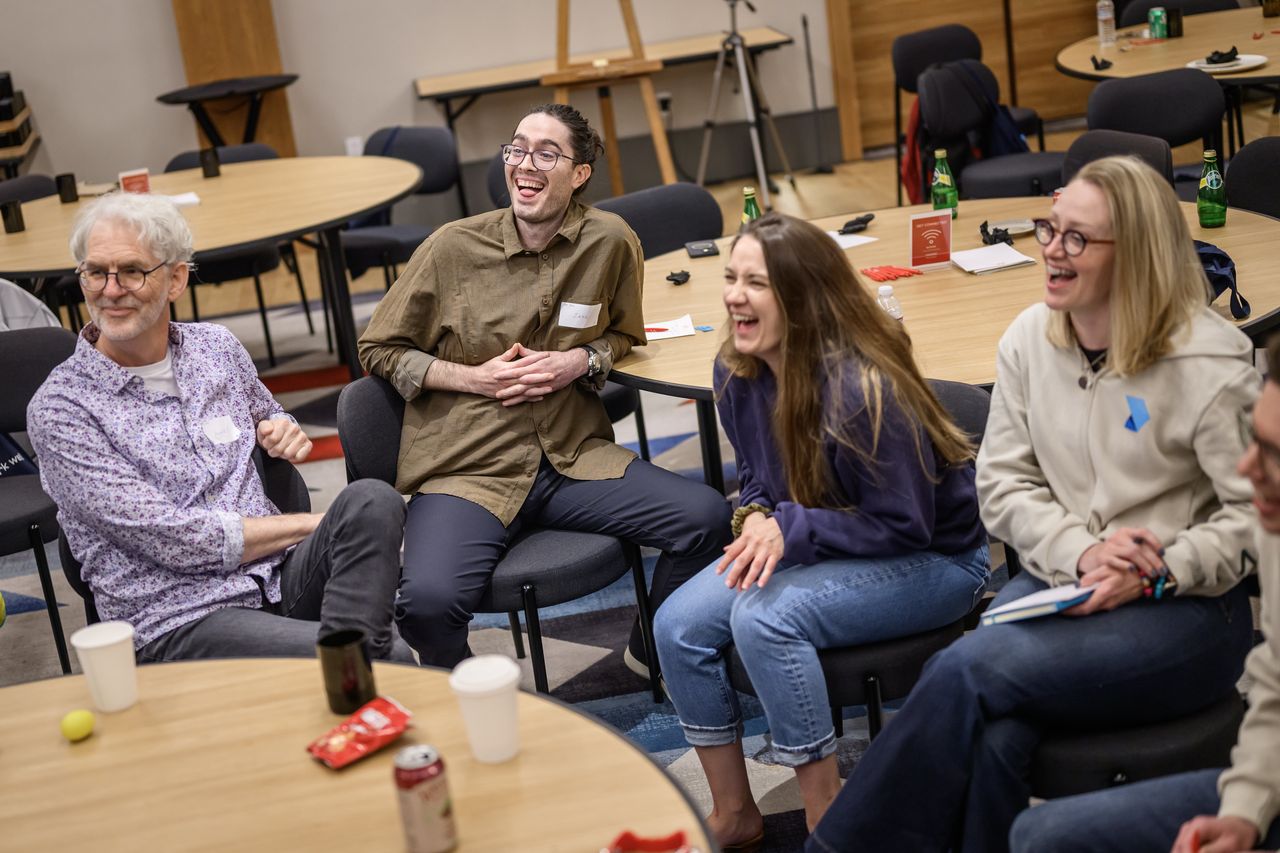Magic Mushrooms. LSD. Ketamine. The Drugs That Power Silicon Valley.
Entrepreneurs including Elon Musk and Sergey Brin are part of a drug movement that proponents hope will expand minds, enhance lives and produce business breakthroughs
Elon Musk takes ketamine. Sergey Brin sometimes enjoys magic mushrooms. Executives at venture-capital firm Founders Fund, known for its investments in SpaceX and Facebook, have thrown parties that include psychedelics.
Routine drug use has moved from an after-hours activity squarely into corporate culture, leaving boards and business leaders to wrestle with their responsibilities for a workforce that frequently uses. At the vanguard are tech executives and employees who see psychedelics and similar substances, among them psilocybin, ketamine and LSD, as gateways to business breakthroughs.
“There are millions of people microdosing psychedelics right now,” said Karl Goldfield, a former sales and marketing consultant in San Francisco who informally counsels friends and colleagues across the tech world on calibrating the right small dose for maximum mindfulness. It is “the fastest path to opening your mind up and clearly seeing for yourself what’s going on,” said Goldfield.
Goldfield doesn’t have a medical degree and said he learned to dose through experience. He said the number of questions he gets about how to microdose has grown dramatically in recent months.
The account of Musk’s drug use comes from people who witnessed him use ketamine and others with direct knowledge of his use. Details about Brin’s drug use and the Founders Fund parties come from people familiar with them.
Musk, his attorney and a top adviser didn’t respond to requests for comment. A spokeswoman for Brin, the co-founder of Google, didn’t respond to requests for comment.
In a tweet following online publication of this article, Musk said he believed ketamine is a better way to deal with depression compared with more widely prescribed antidepressants that are “zombifying” people.
The movement isn’t a medical experiment or a related investment opportunity, but a practice that has become for many a routine part of doing business. It comes with risks of dependence and abuse. Most of the drugs are illegal. Before he was killed in April in San Francisco, Bob Lee, the founder of CashApp, was part of an underground party scene known as “the Lifestyle,” where the use of psychedelics was common. Lee had ingested drugs including ketamine before his death, an autopsy showed.
Silicon Valley has long had a tolerance toward drug use—many companies don’t test employees regularly—but the phenomenon is worrying some companies and their boards, who fear they could be held liable for illegal activity, according to consultants and others close to the companies.
Users rely on drug dealers for ecstasy and most other psychedelics, or in elite cases, they employ chemists. One prolific drug dealer in San Francisco who serves a slice of the tech world is known as “Costco” because users can buy bulk at a discount, according to people familiar with the business. “Cuddle puddles,” which feature groups of people embracing and showing platonic affection, have become standard fare.
Some start dabbling with psychedelics in search of mental clarity or to address health issues and end up using the drugs more frequently at Silicon Valley parties or raves, where they have taken a role similar to alcohol at a cocktail party.
Invitations to psychedelic parties are often sent through the encrypted messaging app Signal, rather than over email or text, so they can’t be shared easily. At some high-end private parties, users are asked to sign nondisclosure agreements and sometimes pay hundreds of dollars to attend, according to people who have attended or received invitations.
Spencer Shulem, CEO of the startup BuildBetter.ai, said he uses LSD about every three months because it increases focus and helps him think more creatively. While working alone after hours, he will sometimes take a low-enough dose where he said no one would know he was on LSD. Other times, he’ll take a larger dose alone and connect with nature on a hike.
Shulem, who lives in New York City, said the high expectations of venture-capital firms and investors in general can lead founders to turn to psychedelics to provide an edge. “They don’t want a normal person, a normal company,” he said. “They want something extraordinary. You’re not born extraordinary.”
He said he is cautious about sharing his LSD experiences at work unless someone asks. “I am not having a preaching seminar every Friday about the joys of drugs,” he said.
Fueling the informal use of psychedelics across the tech world is the formal, clinical work performed by doctors and researchers seeking new solutions for mental-health problems. Ketamine, which doctors have long used as an anaesthetic, is sometimes prescribed to treat depression or post-traumatic stress disorder, often as pills or through infusions at clinics.
Investors are pouring funds into companies working to develop treatments with psychedelics. Rick Doblin, the founder of the research and advocacy nonprofit Multidisciplinary Association for Psychedelic Studies, or MAPS, saw about 12,000 attendees at his psychedelics science conference in Denver last week, a record, compared with about 3,000 six years ago.
Using psychedelics was the subject of a bestselling book by Michael Pollan in 2018 called “How to Change Your Mind.” A Netflix docuseries based on the book followed in 2022.
The value of the psychedelic drug market, which includes companies engaging in research and trials to legalise the use, is expected to reach $11.8 billion by 2029, up from $4.9 billion in 2022, according to research firm BrandEssence. Founders Fund has an ownership stake in Compass Pathways, a company researching commercial psilocybin development, and its co-founder Peter Thiel is personally invested in Atai Life Sciences, which is developing psychedelics for mental health.
A spokeswoman for Founders Fund said, “Research shows that psychedelics can provide significant mental health benefits, and we support public and private sector efforts to make these drugs safely and legally available.”
While some tech players say taking the drugs brings a medical benefit, most are dosing themselves, and not in a clinical setting. Tech innovators such as Apple’s Steve Jobs have long talked about using LSD. Today, the use of psychedelics has become widespread.
“A few years ago, talking about psychedelics in Silicon Valley was a big no-no,” said Edward Sullivan, the chief executive of Velocity Coaching, a business that coaches startup founders and corporate executives. “That has really changed.”
He said about 40% of his clients have expressed an interest in psychedelics recently, up from a handful five years ago. Some executive coaches said they are now helping companies and leadership teams navigate drug use.
Some entrepreneurs microdose to derive benefits, often in hope of alleviating anxiety or sharpening focus. Others in tech said they take full doses of a drug—using the term macrodose—as they try to reach a high that will lead to a new disruptive idea. Goldfield describes this as “ego death,” an experience when a user gets to the core of their being and “lets go.”
The chief executive of the startup Iterable, Justin Zhu, said he microdosed LSD two years ago and was fired by the company’s board of directors. Zhu’s dismissal was for violations of “Iterable’s Employee Handbook, policies and values,” the company wrote in an email to staff at the time.
Zhu said he microdosed LSD once in 2019 on the recommendation of another entrepreneur, to help cope with depression as a result of being a CEO. He found meditation and fasting weren’t enough. “It did really heal a lot of the trauma for me,” he said in an interview.
Zhu filed a lawsuit against Iterable and some of its board members alleging he was terminated for voicing complaints about anti-Asian discrimination, and that the microdosing issue was a pretext. The dose affected Zhu’s vision during an investor meeting, but overall the experience brought a positive change to his work life, Zhu’s lawyers said in the lawsuit.
A spokeswoman for Iterable declined to comment for the company and the board. The case is proceeding to private arbitration, Zhu said.
When Musk in 2018 smoked marijuana on “The Joe Rogan Experience” podcast, he and employees of Musk’s rocket company, SpaceX, were subjected to drug tests for months after, Musk has said, without offering further details.
The CEO has told people he microdoses ketamine for depression, and he also takes full doses of ketamine at parties, according to the people who have witnessed his drug use and others who have direct knowledge of it.
The psychedelic parties that attract chief executives such as Musk and others across the tech industry extend beyond Silicon Valley. Tech and other industry executives have attended similar parties in Miami and Mexico, where guest lists are tightly controlled and kept confidential, according to attendees.
Goldfield, the former sales consultant who helps his friends microdose, said he counsels users to take a small amount of a psychedelic—say 10 micrograms in a gummy or a pill—and wait an hour to gauge the effect. Goldfield said that LSD helped him recover from a tough childhood in Chicago of bullying and feeling suicidal.
Microdosing, he said, isn’t the same as being high. “Think of it as a smart drug,” he said. “It’s giving you the ability to be more analytical and be more aware.”
Experts in the field say people who attempt to self-diagnose can slide into abuse. “There’s no guarantee you’re going to be the one who gets that positive outcome on your own,” said Alex Penrod, an addiction specialist in Austin, Texas.
Penrod said he supports the use of psychedelics with the help of a trained therapist but worries about people who use the potential therapeutic benefits of the drugs as a justification for recreational use. “You can get very comfortable with, ‘Well it has positive values, so I’m not going to pay attention to my use,’ ” he said. “It’s kind of blinding.”
When using powerful substances without the assistance of trained professionals, “you’re going to have some people falling into self-destructive behaviour, rather than self-healing behaviour,” said Sullivan, the executive coach.
That is what happened to Tony Hsieh, the former Zappos chief executive who died in late 2020 following injuries in a house fire, the Journal has previously reported. Hsieh believed that ketamine could help him think through business challenges while working at Zappos, which is owned by Amazon.com. Soon, he was overusing, the friends said. Under pressure from Amazon to improve his erratic behaviour, Hsieh resigned shortly before his death, the Journal reported.
Doblin, the founder of MAPS, and other researchers, said they believe there is a way to incorporate drugs into the workplace. At MAPS, which has about 35 employees, Doblin added to his employee manual a section called smokable tasks—things you can do at work when you’re high on drugs, such as brainstorming in a meeting or using Excel.
A for-profit subsidiary of MAPS, which is working to develop a therapy that works in conjunction with MDMA, also known as ecstasy, and has about 130 employees, declined to implement the policy. Doblin called that position “timid and risk-averse.”

CREDIT: Clara Mokri for The Wall Street Journal
SLUG: SVDRUGS
Amy Emerson, the chief executive of MAPS Public Benefit Corp., MAPS’s for-profit arm, said in a written statement, “We support MAPS having policies that work for their teams and the work they are doing and maintain separate policies for our employees and the work we do at MAPS PBC.”
Tim Sae Koo was the founder of a digital marketing startup in San Francisco when he discovered psychedelics at the Coachella music festival in 2014.
He said they helped him realise he had started his business to make his mother proud, and that it was time to sell. “A lot of that kind of exploration in my psychedelic experience helped give me a clarity that I had started the company from a place of a wound,” he said.
For the past five years, he has hosted ayahuasca retreats in Costa Rica geared toward tech entrepreneurs and CEOs. Over 500 people have attended the ceremonies, including a handful of founders of startups worth more than $1 billion, he said.
The retreats last days where people drink a hallucinogenic brew that often induces vomiting but can also open the mind, said Sae Koo, incorporating elements of a practice used by some indigenous cultures.
Dustin Robinson, a former attorney at the law firm Holland & Knight, based in Fort Lauderdale, Fla., said he began researching psychedelics and their healing properties before trying psilocybin in the presence of his life coach. Suddenly, Robinson said, he could see a much broader career path.
He started a psychedelic-focused venture-capital fund. “It helped me step away and think, ‘Wow, I can have so much of a larger impact,’ ” he said.
In the past couple of years, the fund has invested nearly $20 million in 18 different companies involved with psychedelics. He is on track to launch a second fund. The companies are all legal, he said, because they are researching and dispensing the drugs for pharmaceutical purposes.
Robinson said he has received ketamine therapy—full-dose injections by a doctor at a private clinic. He recently attended a five-day psilocybin retreat in Jamaica organised by Beckley Retreats, where he is a lead investor. Users don eye masks in a spiritual ceremony and, under the guidance of trained facilitators, receive a high dose of the drug to “go inward,” he said.
If he still worked at Holland & Knight, “I certainly wouldn’t be posting information about my psychedelic experience,” he said.
Sylvia Benito, a board member and spokeswoman for Beckley, said there is a waiting list for most of the roughly 30 retreats each year. The retreats are popular because “we’re in a time when people are looking for ways to feel like their lives matter.”
At Tesla’s factory in Fremont, Calif., S.O. Swanson, a former line worker, said that while Tesla had a policy against drugs, it had a high tolerance for cannabis and psychedelic use outside of the workday, and employees weren’t routinely tested.
Often Tesla workers were bussed in an hour or more from nearby cities, and it was common to ingest cannabis or psychedelics and arrive at work “California sober,” Swanson said.
Swanson took small doses of LSD, or chocolate laced with magic mushrooms, sometimes after work or on weekends. “Every single day felt a little bit more shiny,” he said.
He said he felt encouraged by Tesla’s chief executive, who occasionally makes drug-related jokes on Twitter.
Swanson was put on leave in 2022 and never brought back to work after offering to sell cannabis brownies to an employee who turned out to be a security guard, he said. After unsuccessfully trying to reach his supervisors to appeal, Swanson said, he emailed Musk through a private email available to employees but didn’t hear back.
Representatives for Tesla and Musk didn’t respond to requests for comment on Swanson.
—Emily Glazer and Shalini Ramachandran contributed to this article.
 Copyright 2020, Dow Jones & Company, Inc. All Rights Reserved Worldwide. LEARN MORE
Copyright 2020, Dow Jones & Company, Inc. All Rights Reserved Worldwide. LEARN MORE
This stylish family home combines a classic palette and finishes with a flexible floorplan
Just 55 minutes from Sydney, make this your creative getaway located in the majestic Hawkesbury region.
As Paris makes its final preparations for the Olympic games, its residents are busy with their own—packing their suitcases, confirming their reservations, and getting out of town.
Worried about the hordes of crowds and overall chaos the Olympics could bring, Parisians are fleeing the city in droves and inundating resort cities around the country. Hotels and holiday rentals in some of France’s most popular vacation destinations—from the French Riviera in the south to the beaches of Normandy in the north—say they are expecting massive crowds this year in advance of the Olympics. The games will run from July 26-Aug. 1.
“It’s already a major holiday season for us, and beyond that, we have the Olympics,” says Stéphane Personeni, general manager of the Lily of the Valley hotel in Saint Tropez. “People began booking early this year.”
Personeni’s hotel typically has no issues filling its rooms each summer—by May of each year, the luxury hotel typically finds itself completely booked out for the months of July and August. But this year, the 53-room hotel began filling up for summer reservations in February.
“We told our regular guests that everything—hotels, apartments, villas—are going to be hard to find this summer,” Personeni says. His neighbours around Saint Tropez say they’re similarly booked up.
As of March, the online marketplace Gens de Confiance (“Trusted People”), saw a 50% increase in reservations from Parisians seeking vacation rentals outside the capital during the Olympics.
Already, August is a popular vacation time for the French. With a minimum of five weeks of vacation mandated by law, many decide to take the entire month off, renting out villas in beachside destinations for longer periods.
But beyond the typical August travel, the Olympics are having a real impact, says Bertille Marchal, a spokesperson for Gens de Confiance.
“We’ve seen nearly three times more reservations for the dates of the Olympics than the following two weeks,” Marchal says. “The increase is definitely linked to the Olympic Games.”

Getty Images
According to the site, the most sought-out vacation destinations are Morbihan and Loire-Atlantique, a seaside region in the northwest; le Var, a coastal area within the southeast of France along the Côte d’Azur; and the island of Corsica in the Mediterranean.
Meanwhile, the Olympics haven’t necessarily been a boon to foreign tourism in the country. Many tourists who might have otherwise come to France are avoiding it this year in favour of other European capitals. In Paris, demand for stays at high-end hotels has collapsed, with bookings down 50% in July compared to last year, according to UMIH Prestige, which represents hotels charging at least €800 ($865) a night for rooms.
Earlier this year, high-end restaurants and concierges said the Olympics might even be an opportunity to score a hard-get-seat at the city’s fine dining.
In the Occitanie region in southwest France, the overall number of reservations this summer hasn’t changed much from last year, says Vincent Gare, president of the regional tourism committee there.
“But looking further at the numbers, we do see an increase in the clientele coming from the Paris region,” Gare told Le Figaro, noting that the increase in reservations has fallen directly on the dates of the Olympic games.
Michel Barré, a retiree living in Paris’s Le Marais neighbourhood, is one of those opting for the beach rather than the opening ceremony. In January, he booked a stay in Normandy for two weeks.
“Even though it’s a major European capital, Paris is still a small city—it’s a massive effort to host all of these events,” Barré says. “The Olympics are going to be a mess.”
More than anything, he just wants some calm after an event-filled summer in Paris, which just before the Olympics experienced the drama of a snap election called by Macron.
“It’s been a hectic summer here,” he says.

AFP via Getty Images
Parisians—Barré included—feel that the city, by over-catering to its tourists, is driving out many residents.
Parts of the Seine—usually one of the most popular summertime hangout spots —have been closed off for weeks as the city installs bleachers and Olympics signage. In certain neighbourhoods, residents will need to scan a QR code with police to access their own apartments. And from the Olympics to Sept. 8, Paris is nearly doubling the price of transit tickets from €2.15 to €4 per ride.
The city’s clear willingness to capitalise on its tourists has motivated some residents to do the same. In March, the number of active Airbnb listings in Paris reached an all-time high as hosts rushed to list their apartments. Listings grew 40% from the same time last year, according to the company.
With their regular clients taking off, Parisian restaurants and merchants are complaining that business is down.
“Are there any Parisians left in Paris?” Alaine Fontaine, president of the restaurant industry association, told the radio station Franceinfo on Sunday. “For the last three weeks, there haven’t been any here.”
Still, for all the talk of those leaving, there are plenty who have decided to stick around.
Jay Swanson, an American expat and YouTuber, can’t imagine leaving during the Olympics—he secured his tickets to see ping pong and volleyball last year. He’s also less concerned about the crowds and road closures than others, having just put together a series of videos explaining how to navigate Paris during the games.
“It’s been 100 years since the Games came to Paris; when else will we get a chance to host the world like this?” Swanson says. “So many Parisians are leaving and tourism is down, so not only will it be quiet but the only people left will be here for a party.”
This stylish family home combines a classic palette and finishes with a flexible floorplan
Just 55 minutes from Sydney, make this your creative getaway located in the majestic Hawkesbury region.






















